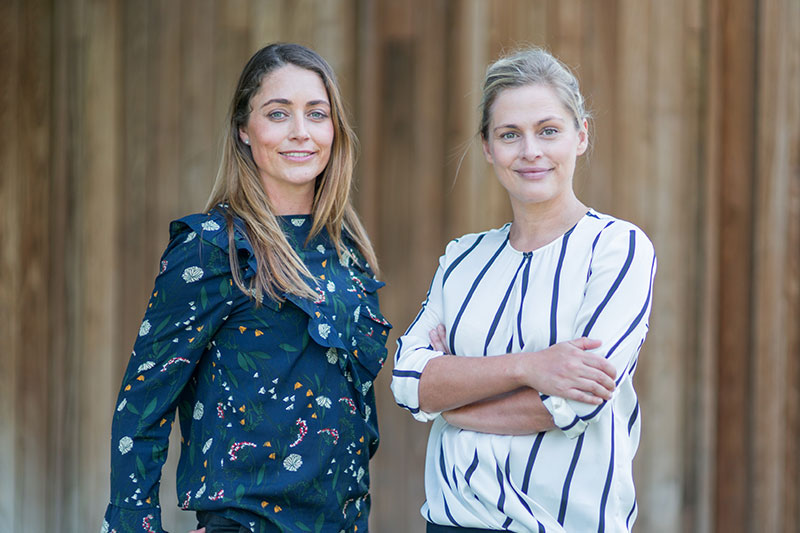Lucy Lloyd, CEO of Australian mentoring platform Mentorloop, reveals the six biggest mistakes people make when finding a mentor – and what to do instead.
It’s often been said that no man is an island. Behind every successful person, you can be sure to find one, if not many, mentors who shepherded them along the way – think Oprah Winfrey and Maya Angelou, Bill Gates and Warren Buffet, or Obi-Wan Kenobi and Qui-Gon Jinn. Mentorships come in all shapes and sizes, and having at least one trusted individual in your corner can do wonders for your professional growth, opening your mind to worldviews and opportunities previously unthought of.
Mentoring programmes are also extremely valuable for a company, with evidence to suggest that it boosts core organisational measures such as employee engagement, retention, productivity, workplace culture, and human (re)connection, especially among millennials. According to one case study, retention rates were significantly higher among employees who participated in some form of a mentoring programme (namely, 69% for mentors and 72% for mentees), and were five times more likely to be promoted than those who did not. Equally, a mentorship that goes sour could prove devastating to all parties involved. Not only is the relationship damaged, but it can create an uncomfortable situation for both individuals at work, affecting overall performance and morale.
Here to demystify the do’s and don’ts of mentorship is Lucy Lloyd, who co-founded mentoring software startup Mentorloop with childhood friend Heidi Holmes in 2016. Firm believers that “the right connection can change your life,” Lucy and Heidi realised, over a glass of wine, that such connections weren’t accessible to all, and set about creating a “dating site for mentoring relationships” to make mentoring mainstream. Its innovative platform has helped the likes of Monash University and the Australian Olympic Committee match their people into life-changing mentorships at scale, saving programme coordinators time, while moving the needle on engagement, productivity, and diversity. So, without further ado, here are six common pitfalls to avoid if you want to build a successful mentoring relationship.

Mentorloop Founders Heidi Holmes (left) and Lucy Lloyd (right)
1. Set Clear Expectations from the Get-Go
One of the biggest mistakes people make, according to Lucy, is asking someone right off the bat to ‘be their mentor’ without clarifying their ‘why’. “Don’t just waltz up to someone and say, “Will you be my mentor?” because firstly, it sounds a bit silly; and secondly, there are so many unknowns in that question. Are we catching up once a week? How will we know if and when the mentorship has achieved its purpose?” Mentoring is ultimately a time commitment, and by failing to set clear expectations, “you put far too much pressure on that person,” she states.
A mentor provides strategic input, not a magic wand. As such, it’s vital that mentees put in the work first by defining precisely what they want out of their careers. Looking to break into a new field or climb the corporate ladder? Become a more confident public speaker? Enhance your portfolio? The more you understand your reason for needing a mentor, the more targeted (and compelling) your ‘ask’ will be when you approach one. “So, you might say something like, ‘I’m at this stage in my career right now and here are my priorities. I see you’ve achieved X, Y, and Z, and would love to hear your thoughts on these three questions’,” Lucy relates. “We always counsel this rule of three for agenda-setting because you can see people visibly relax at the idea of only committing to three questions, and then letting it progress from there.”
2. Don’t Limit Yourself to Only Mentors Who Are Older or More Experienced Than You
It is commonly assumed that mentors must be older – and therefore, wiser – than you. But while there are certainly lessons to be learned from those who are 5-10 years ahead in their careers, zeroing in on seniority alone (or any one attribute for that matter) can lead to missed opportunities and biases. “When a really senior person looks back on their career, they often have this ‘survivor bias’ where they’re convinced they always made the right decisions and view events as more predictable or linear than they actually were in hindsight.” Another drawback is that their insights may be time-bound, hindering their ability to relate to the specific challenges you face today.
With that in mind, Lucy emphasises the power of peer-to-peer mentoring. “When you are speaking to someone on your level, they’re wrestling with, say, five different possibilities for what they might do next. And it’s in those discussions about multiple possibilities that you get the greatest insight”. As a peer’s experience (both in and out of the workplace) largely resembles your own, the traditionally rigid lines between mentor’ and mentee are relaxed in favour of a more equal, give-and-take dynamic.

3. Don’t Pick Your Mentor Based on Shared Similarities – Look at Outcomes Instead
“People often think that finding a mentor is like a personality quiz or eHarmony where you’re matched based on having values in common,” Lucy says. “That’s all well and good for romantic relationships, but the problem with that in a professional relationship is that you get matches that are like-with-like. And when you only match like-with-like, you don’t get that diversity of thought.” Instead, what you get is an echo chamber in which you’re only exposed to answers you want to hear, as opposed to answers that push you outside your comfort zone.
Matching like-with-like can also have a discriminatory effect, excluding those who don’t already have ‘ideal’ mentor/mentee attributes. “Mentoring, when left to happen organically, tends to favour the bold. It favours people who are already optimising for their own development, who already have access to great networks and a leg up on others,” she cautions. “There’s a tendency, especially among women in tech, to not ask for help because we want to prove that we’re as good as anybody – even though asking for help actually gets you further! The impetus to ask is simply missing due to a lack of visibility of, and accessibility to, mentors”.
For this reason, Mentorloop’s matching algorithm is built in such a way that it prioritises desired skills and outcomes (your ‘why’) over attributes. “We want to enable the non-obvious connections; to make the invisible visible. And we do that by matching people purely based on what they want to achieve, rather than who they are. That’s how you bring talent off the sidelines and get the best results from a diversity perspective”.
4. Don’t Rely on One Mentor for Everything
“When people take the approach of, ‘I just want to find the perfect mentor who’s going to answer all of my questions’, they’re raising the stakes too high,” Lucy warns. There is no such thing as a ‘one-size-fits-all mentor’ because no single person has the knowledge, time, or capability to advise you on every aspect of your life – everyone has their blind spots! Additionally, as we evolve, our aspirations, career trajectories, and the types of people we gravitate toward are bound to evolve too.
Take some of that pressure off by seeing it as an ongoing search for your own “personal advisory board”; one that will undoubtedly take a good deal of trial and error. And as is the case with all successful companies, board diversity is key. “The aim should be to cultivate more mentoring relationships from a variety of perspectives for different goals in your life,” Lucy counsels. This might involve finding one mentor for work, another for finances, and another for fitness or lifestyle improvements. Whatever you decide, having more than one mentor gives you a platter of wisdom to pick and gain clarity from. “Your job as a mentee is to gather as many different data points as possible and then navigate your own path through them.”

5. Mentorship is a Two-Way Street – Don’t Take and Never Give
One of the most common misconceptions about mentoring is that it’s a ‘one-way’ transaction where “there’s this Mr Miyagi-like figure that just broadcasts information and the pupil at their feet consumes it all,” Lucy expounds. “But at Mentorloop, we believe that effective mentoring is a reciprocal relationship, not a hierarchical one. The mentor brings the experience and the mentee brings the enthusiasm, and in doing so, both parties are enriched.”
While the benefits of being a mentee are well-documented, mentors have much to gain from being a ‘sounding board’ too. For starters, it gives them the opportunity to reflect on pivotal career moments, poke holes in deep-seated beliefs and “hold a mirror up to themselves”. Reciprocal mentoring also allows mentors to keep tabs on emerging trends, brush up on their digital skills, and better understand what makes the next generation of leaders tick. “On our Mentorloop Quality Score, which is how we track mentoring outcomes at scale , it’s often the mentors who comment about how mentees have given them a newfound enthusiasm for their industry and what the future holds,” Lucy mentions.
To lose sight of this reciprocity, then, is to dampen any potential for an authentic, long-lasting mentoring relationship. Take a step back and ask yourself what you bring to the table as a mentee. In what ways can you add value to this relationship? By proactively anticipating their needs (such as sharing a useful article, retweeting their Tweets, or posting a review of their product), you cease to be an obligation. Instead, you become an investment the mentor works on out of self-interest. Simply put, you don’t get a mentor, you develop one.
6. Always be Grateful for Your Mentor’s Guidance
When you’ve asked someone for advice, you owe them the courtesy of respecting their time and making the most of it by ensuring seamlessness – if only by adjusting your own schedule to accommodate theirs, offering to pay for coffee, or showing up to each meeting with a prepared agenda in mind.
Another way to show gratitude (and accountability) is by utilising what Lucy calls the delayed thank you. “Ideally, you would already be sending follow-up emails after each meeting to say ‘thank you for your time’, etc.,” she begins. “But when you’ve actually acted on their advice and gotten the results, it’s important to keep your mentor updated with a little note that says, ‘you gave me this piece of advice on this date and since then, I’ve done these things and it’s resulted in this amazing outcome for me’. Delayed thank you’s are so powerful because they kind of come out of nowhere, and they’re also a great source of positive reinforcement for that mentor to continue investing in you.”
Knowing how to exit gracefully from a relationship that has run its course, which it inevitably will, should also form a part of any mentee’s repertoire. Although no one wants to say goodbye to a good thing, sometimes it’s best to leave on a high note, rather than draining it dry to the point of atrophy, resentment, or dysfunction. “It doesn’t have to be a breakup,” Lucy explains. “The fact is, you never want to completely burn bridges with a good mentor because you may need to come back to it six months or two years down the line. So again, it’s about leading with gratitude (a handwritten card goes an especially long way) and being transparent about not needing as much of their time as you used to, but that you look forward to keeping in touch.”

More about Mentorloop
Mentorloop is a cloud-based software platform that makes effective mentoring programmes easier to start, run, and participate in. Through instant employee onboarding, smart matching, automated content tracks or ‘nudges’, real-time reporting, live communication channels, and goal-setting features, it removes all the guesswork and takes care of the admin heavy-lifting typically associated with mentorships, so that organisations can concentrate on what’s important: people, relationships, and the cross-pollination of skills. Its ever-growing clientele spans four continents, with programmes like Women Offshore and Out for Australia dedicated to empowering women, minority, and LGBTQI+ communities within the workplace and beyond.
Related Articles
4 Types of Mentors Everyone Should Find
6 Success Tips from Asia’s Top 25 Innovator Ashley Dudarenok





